
SURRENDER AT STALINGRAD
The bloodiest battle in history ended on 2 February 1943 when the surrounded German 6th Army surrendered to Soviet forces at Stalingrad. The Germans had been pushed into a defensive pocket and were starving and short of ammunition. Adolf Hitler refused 6th Army’s commander, Friedrich Paulus, permission to surrender and even promoted him to field marshal.
Paulus nevertheless surrendered to the Soviets on 31 January, with his subordinate General Karl Strecker holding out for two more days. When Strecker finally surrendered he sent the last signal from Stalingrad saying “Long live Germany!” rather than “Heil Hitler!”
Approximately 91,000 German soldiers were captured, including 22 generals. The Battle of Stalingrad’s casualties were apocalyptic and included losses of c.1,100,000 Soviet and c.800,000 Axis soldiers along with c.40,000 civilians.
SPORTPALAST SPEECH
On 18 February 1943, Joseph Goebbels delivered an infamous speech at the Berlin Sportpalast to a large, carefully selected audience. Occurring soon after the German capitulation at Stalingrad, he declared total war against the Allies underneath a banner that said: “TOTAL WAR – SHORTEST WAR.”
This story is from the Issue 116 edition of History of War.
Start your 7-day Magzter GOLD free trial to access thousands of curated premium stories, and 9,000+ magazines and newspapers.
Already a subscriber ? Sign In
This story is from the Issue 116 edition of History of War.
Start your 7-day Magzter GOLD free trial to access thousands of curated premium stories, and 9,000+ magazines and newspapers.
Already a subscriber? Sign In

NAUMACHIA TRUTH BEHIND ROME'S GLADIATOR SEA BATTLES
In their quest for evermore novel and bloody entertainment, the Romans staged enormous naval fights on artificial lakes
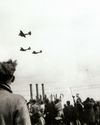
OPERATION MANNA
In late April 1945, millions of Dutch civilians were starving as Nazi retribution for the failed Operation Market Garden cut off supplies. eet as In response, Allied bombers launched a risky mission to air-drop food
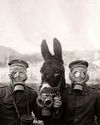
GASSING HITLER
Just a month before the end of WWI, the future Fuhrer was blinded by a British shell and invalided away from the frontline. Over a century later, has the artillery brigade that launched the fateful attack finally been identified?
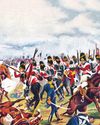
SALAMANCA
After years of largely defensive campaigning, Lieutenant General Arthur Wellesley went on the offensive against a French invasion of Andalusia

HUMBERT 'ROCKY'VERSACE
Early in the Vietnam War, a dedicated US Special Forces officer defied his merciless Viet Cong captors and inspired his fellow POWs to survive
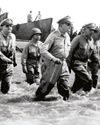
LEYTE 1944 SINKING THE RISING SUN
One of the more difficult island campaigns in WWII's Pacific Theatre saw a brutal months-long fight that exhausted Japan’s military strength

MAD DAWN
How technology transformed strategic thinking and military doctrine from the Cold War to the current day
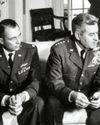
BRUSHES WITH ARMAGEDDON
Humanity came close to self-annihilation with the Cuban Missile Crisis, Broken Arrows’ and other nuclear near misses
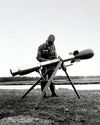
THE DEADLY RACE
How the road to peace led to an arms contest between the USA and USSR, with prototypes, proliferation and the world’s biggest bomb
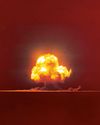
THE MANHATTAN PROJECT
Einstein, Oppenheimer and the race to beat Hitler to the bomb. How a science project in the desert helped win a war